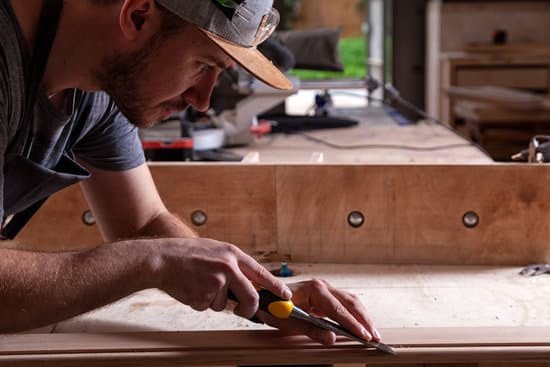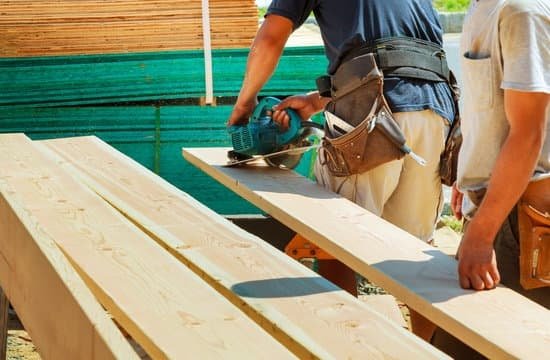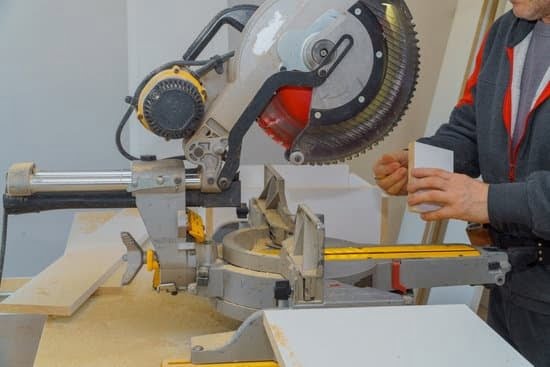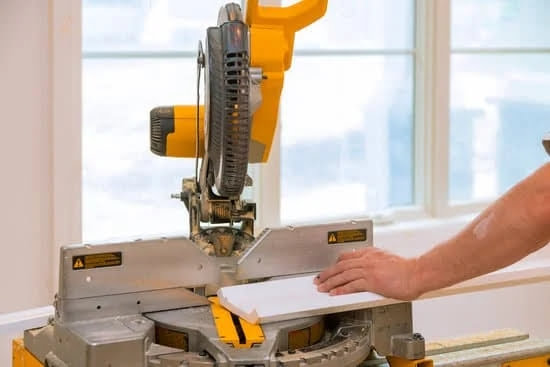Are you a woodworking enthusiast wondering, “what tools should I have in a woodworking shop?” The quality of work produced in a woodworking shop is heavily reliant on having the right tools. From hand tools to power tools, safety equipment, and maintenance tools, each plays a crucial role in ensuring precise and high-quality craftsmanship. In this article, we will delve into the essential tools needed to equip a woodworking shop for success.
Having the right tools in a woodworking shop is not just about convenience; it significantly impacts the quality of work produced. Whether you are a novice or seasoned woodworker, having the necessary tools at your disposal can make all the difference. In addition to enhancing efficiency and precision, the right tools can also ensure better safety practices and overall enjoyment of the craft.
From basic hand tools such as chisels and hand saws to power tools like table saws and routers, each tool has its unique purpose and contributes to achieving outstanding results. Additionally, measuring and marking tools play an essential role in maintaining accuracy, while safety equipment is critical for protecting yourself from potential hazards. By understanding the significance of each type of tool and investing in high-quality options, woodworkers can elevate their craft to new heights.
Essential Hand Tools
Woodworking is a craft that requires a variety of tools to achieve the best results. When it comes to hand tools, there are several essentials that every woodworking shop should have. Chisels are crucial for cutting and shaping wood, while hand saws are necessary for making precise cuts.
Planes are vital for smoothing surfaces and shaping wood, and carving tools are essential for creating intricate designs and details in projects. These basic hand tools are fundamental for any woodworking shop and should be high-quality to ensure precision and durability in their use.
In addition to the essential hand tools, power tools also play a significant role in woodworking. Table saws are indispensable for making accurate and consistent cuts, while routers are essential for creating decorative edges and joinery. Power drills make it easier to create holes and fasten pieces together, and sanders provide a smooth finish on wood surfaces. These power tools enhance efficiency and productivity in a woodworking shop, allowing woodworkers to work with greater ease and speed.
Measuring and marking tools are another essential category for any woodworking shop. Precise measurements are crucial in woodworking, so tape measures, squares, and marking gauges are indispensable tools to ensure accuracy in every project. With these measuring and marking tools, woodworkers can lay out their designs precisely before they start working with their hand or power tools.
It is important to understand the specific needs of your woodworking projects to determine what specialty tools may be required. Carving tools, molding planes, biscuit joiners, or other specialized equipment may be essential for certain tasks. Investing in high-quality specialty tools will ensure that you have the right equipment for any unique woodworking project you undertake.
Power Tools
When it comes to setting up a woodworking shop, having the right power tools is essential for efficiently completing projects. One of the most foundational power tools that every woodworking shop should have is a table saw. This versatile tool can be used for a variety of cutting tasks, including ripping and cross-cutting, making it an indispensable part of any woodworker’s toolkit.
Another crucial power tool to have in a woodworking shop is a router. Routers are incredibly versatile and can be used for shaping edges, creating joinery, and even adding decorative accents to woodworking projects. Investing in a quality router will expand the capabilities of your shop and enable you to take on more complex projects.
Additionally, power drills are a must-have for any woodworking shop. Whether it’s drilling pocket holes for joinery or installing hardware on finished pieces, having a reliable power drill will make quick work of drilling tasks. Sanders are also essential for achieving smooth and professional finishes on woodworking projects.
In addition to these fundamental power tools, woodworkers may also consider adding other specialized tools such as band saws, jointers, or thickness planers to their arsenal. By carefully selecting the right power tools for your woodworking shop, you can ensure that you have everything you need to tackle a wide range of projects with precision and efficiency.
| Power Tool | Use |
|---|---|
| Table Saw | Cutting tasks including ripping and cross-cutting |
| Router | Shaping edges, creating joinery, and adding decorative accents |
| Power Drill, Drilling pocket holes for joinery or installing hardware, | |
Measuring and Marking Tools
When it comes to woodworking, precise measurements are crucial for achieving the desired outcome in any project. Having the right measuring and marking tools is essential for ensuring accuracy and consistency throughout the woodworking process. Here are some of the most important measuring and marking tools that every woodworking shop should have:
- Tape Measure: A tape measure is a staple tool for any woodworker, allowing for quick and easy measurements of wood pieces.
- Squares: Combination squares, try squares, and speed squares are all useful for ensuring that corners are perfectly square and angles are accurate.
- Marking Gauges: These tools are essential for making precise marks on wood surfaces, helping woodworkers to accurately score lines for cutting or jointing.
- Calipers: Both inside and outside calipers can be used to measure thickness, diameters, or distances between two points with great precision.
- Rulers and Straight Edges: These tools are necessary for drawing straight lines and making measurements in smaller increments.
Having these measuring and marking tools readily available in a woodworking shop can make a significant difference in the quality of work produced. They allow woodworkers to ensure that their projects are built to the correct specifications, leading to professional-looking results.
In addition to having the right measuring and marking tools, it’s also important for woodworkers to know how to use them effectively. Understanding proper measuring techniques and how to accurately mark wood pieces is essential for achieving precision in woodworking projects. By investing in high-quality measuring and marking tools and taking the time to master their use, woodworkers can elevate the quality of their workmanship.
Safety Equipment
Woodworking can be a gratifying and productive hobby or profession, but it is crucial to prioritize safety in the woodworking shop. Using the appropriate safety equipment can help prevent accidents and injuries, ensuring a safer and more enjoyable woodworking experience. Here are some essential safety items that should be present in every woodworking shop:
Goggles: Protecting Your Eyesight
Goggles are an indispensable safety item in a woodworking shop. When working with wood, there is a risk of wood chips, splinters, dust, and other debris flying into your eyes. That’s why wearing goggles that provide full coverage and have side shields is essential to protect your eyes from potential injuries.
Ear Protection: Safeguarding Your Hearing
In a woodworking shop, power tools such as table saws and routers generate high levels of noise that can damage your hearing over time. To prevent hearing loss, it is crucial to wear ear protection such as earmuffs or earplugs when operating loud machinery or tools for an extended period.
Dust Masks: Guarding Against Respiratory Hazards
Woodworking often produces fine dust particles that can pose serious health risks if inhaled regularly. To protect your respiratory system from airborne dust and wood particles, it is imperative to wear a high-quality dust mask or respirator while sanding, cutting, or working with untreated wood.
By prioritizing safety and investing in the correct safety equipment, woodworkers can create a more secure environment in their workshops. Goggles protect the eyes from debris, ear protection guards against hearing damage, and dust masks ensure respiratory health amidst airborne particles. These simple yet vital pieces of safety gear can make all the difference when it comes to protecting yourself while enjoying the art of woodworking.
Clamps and Workholding Tools
Securing and holding wood pieces is a crucial part of any woodworking project, and having the right clamps and workholding tools is essential to ensure the accuracy and quality of the finished product. One of the most common types of clamps used in woodworking is the bar clamp, which is versatile and can be used for a wide range of projects.
Another essential type of clamp is the C-clamp, which is ideal for securing smaller pieces of wood or attaching jigs to a workbench.
In addition to traditional clamps, other workholding tools are also vital in a woodworking shop. For example, bench dogs are indispensable for holding workpieces in place while they are being worked on, providing stability and freeing up the woodworker’s hands to focus on cutting or shaping. Woodworkers can also utilize adjustable clamping systems like toggle clamps to hold down material quickly and securely while they are working on it without damaging its surface.
Furthermore, having access to a variety of vise options in a woodworking shop can greatly enhance a woodworker’s ability to secure pieces during different types of projects. From bench vises to quick-release vises, having these workholding tools allows for precise positioning and secure fastening, ultimately improving the overall quality of the craftsmanship.
| Workholding Tool | Description |
|---|---|
| Bar Clamp | Versatile clamp suitable for various projects. |
| Bench Dogs | Holds workpieces in place during cutting or shaping. |
| Toggle Clamps | Adjustable clamping systems that hold material securely. |
| Vise Options | Provides precise positioning and secure fastening. |
Sharpening and Maintenance Tools
Keeping your woodworking tools sharp is crucial for achieving the best results in your projects. Dull tools can lead to rough and sloppy cuts, which can compromise the quality of your work. Additionally, sharp tools are safer to use as they require less force to cut through wood, reducing the risk of slipping and causing injury.
The Importance of Sharpening Stones
Investing in high-quality sharpening stones is essential for maintaining the sharpness of your chisels, planes, and other cutting tools. There are various types of sharpening stones available, including waterstones, oilstones, and diamond stones. Each type has its own advantages and disadvantages, so it’s important to choose the right one based on your specific needs.
Using Honing Guides
Honing guides are valuable tools for maintaining consistent bevel angles when sharpening your chisels and plane blades. They help ensure that the cutting edge remains at the optimal angle for efficient and precise cutting. By using honing guides, woodworkers can achieve uniform sharpness across all their tools, resulting in better overall performance during woodworking projects.
Tool Maintenance Supplies
Aside from sharpening stones and honing guides, woodworking shops should also be equipped with basic maintenance supplies such as lubricants, rust removers, and cleaning solutions. These supplies help prolong the life of your tools by preventing corrosion and keeping them in optimal working condition. Regular maintenance is key to ensuring that your tools remain sharp and effective for years to come.
Specialty Tools
Carving Tools
Carving tools are essential for anyone interested in creating intricate designs and patterns in wood. Different types of carving tools include chisels, gouges, and veiners, each serving a specific purpose in shaping the wood. These tools allow woodworkers to create detailed carvings for furniture, decorative pieces, and even artistic sculptures. Investing in high-quality carving tools is crucial for achieving precise and clean cuts on the wood, resulting in professional-looking finished products.
Molding Planes
Molding planes are specialized hand tools used for shaping and cutting decorative moldings and profiles into wooden surfaces. These planes come in various shapes and sizes to achieve different designs on the wood, such as ogees, beads, fillets, and coves.
Woodworkers who frequently work on furniture or cabinetry projects often require molding planes to add aesthetic details to their pieces. With the right molding planes in the woodworking shop, artisans can elevate their craftsmanship by incorporating unique features into their creations.
Biscuit Joiners
Biscuit joiners, also known as plate joiners, are power tools used to create strong and seamless joints between wooden boards. These tools work by cutting matching slots into the edges of two pieces of wood and then inserting an oval-shaped biscuit or wooden dowel into the slots before clamping the boards together.
Biscuit joiners are commonly used in making tabletops, cabinets, and other large wooden structures where precise alignment is crucial for stability and durability. Having a biscuit joiner in the woodworking shop enables craftsmen to produce professional-quality furniture with secure joints that withstand wear and tear over time.
Conclusion
In conclusion, the tools you have in your woodworking shop can make a significant difference in the quality of work you produce. Having the right tools not only makes tasks easier and more efficient but also ensures that your finished products are of higher quality.
From essential hand tools like chisels and planes to power tools like table saws and routers, each tool has its role in woodworking. It is important to invest in high-quality tools to ensure optimum results and a better overall woodworking experience.
When it comes to measuring and marking tools, having precise measurements is crucial for accurate cuts and fits. Tools such as tape measures, squares, and marking gauges are indispensable in any woodworking shop. Additionally, safety equipment should never be overlooked. Goggles, earmuffs, dust masks, and other safety gear are essential for protecting yourself while working with wood.
In addition to the basic hand and power tools, clamps, workholding devices, sharpening stones, honing guides, and specialty tools all play an important role in creating high-quality woodworking projects. By investing in these essential items for your woodshop setup, you’ll be setting yourself up for success with every project you take on.
Overall, having the right tools in a woodworking shop is crucial for producing top-quality work. From ensuring accurate measurements to maintaining safety standards while working with wood, investing in the right tools will make a world of difference. As you continue to build your collection of woodworking tools over time, always remember that having the right tools will contribute to the successful outcome of each project you take on.
Frequently Asked Questions
What Is the Most Used Tool in a Wood Shop?
The most used tool in a wood shop is likely the table saw. This versatile piece of equipment is essential for making straight and precise cuts in wood, making it a foundational tool for any woodworking project.
What Do You Need for a Wood Workshop?
To set up a wood workshop, you will need a range of tools and equipment including a table saw, miter saw, jigsaw, hand saws, power drills, sanders, clamps, chisels, hammers, measuring tools like a tape measure and square, as well as protective gear such as safety goggles and hearing protection.
Additionally, having a good workbench and adequate lighting are also essential for creating a productive space.
What Tools Are Needed for a Carpentry Workshop?
A carpentry workshop requires a variety of tools to handle different tasks. Some essential tools include a circular saw for cutting large pieces of wood, a power drill with various bits for drilling holes and driving screws, hand planes for smoothing out surfaces, different types of chisels for carving and shaping wood, along with layout tools like squares and levels to ensure accuracy in measurements and alignment.
Additionally, having clamps of different sizes and types are vital for securing pieces together during assembly. Overall, the key is to have a well-rounded selection of both power tools and hand tools to tackle any carpentry project effectively.

Hi everyone! I’m a woodworker and blogger, and this is my woodworking blog. In my blog, I share tips and tricks for woodworkers of all skill levels, as well as project ideas that you can try yourself.





